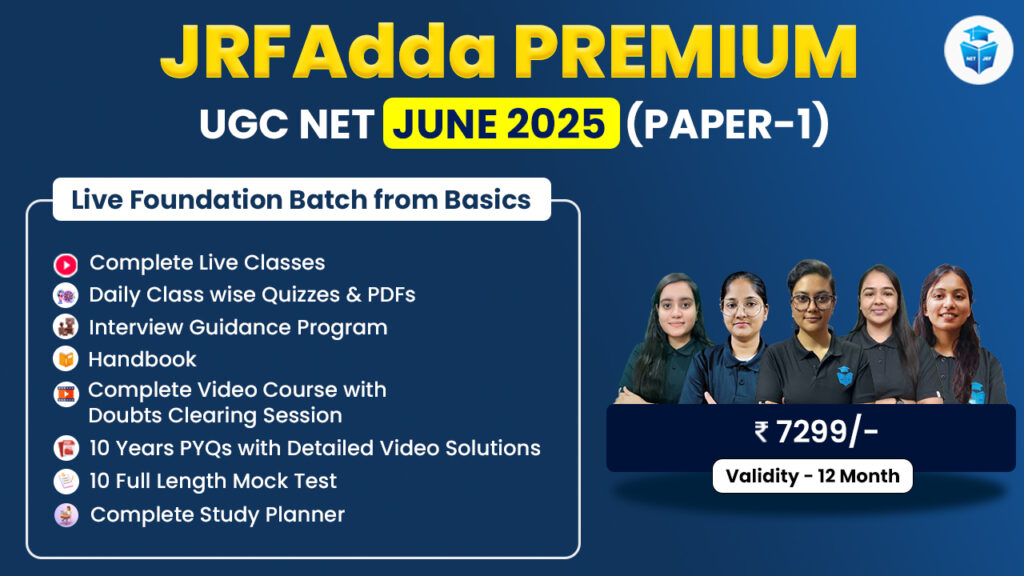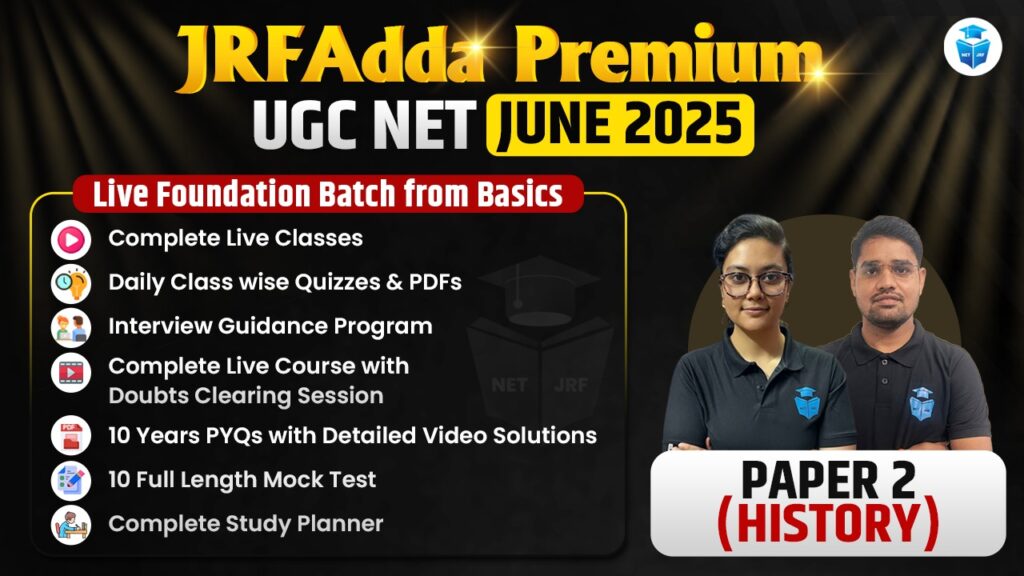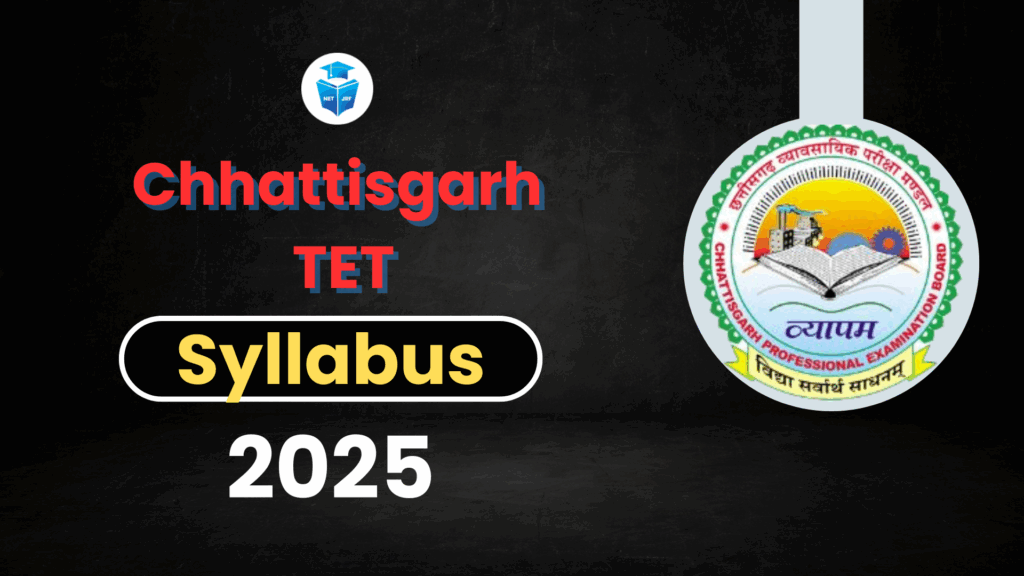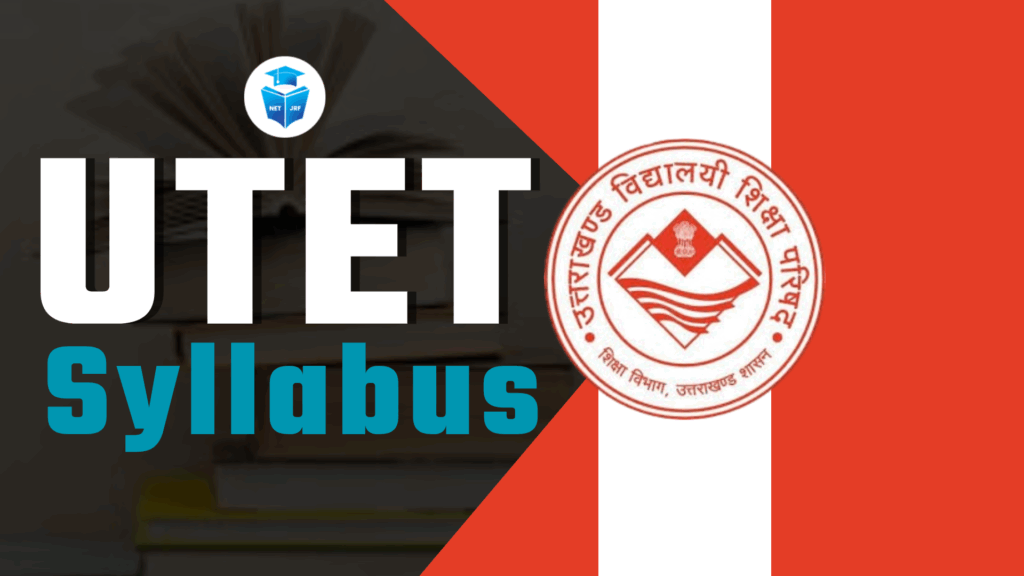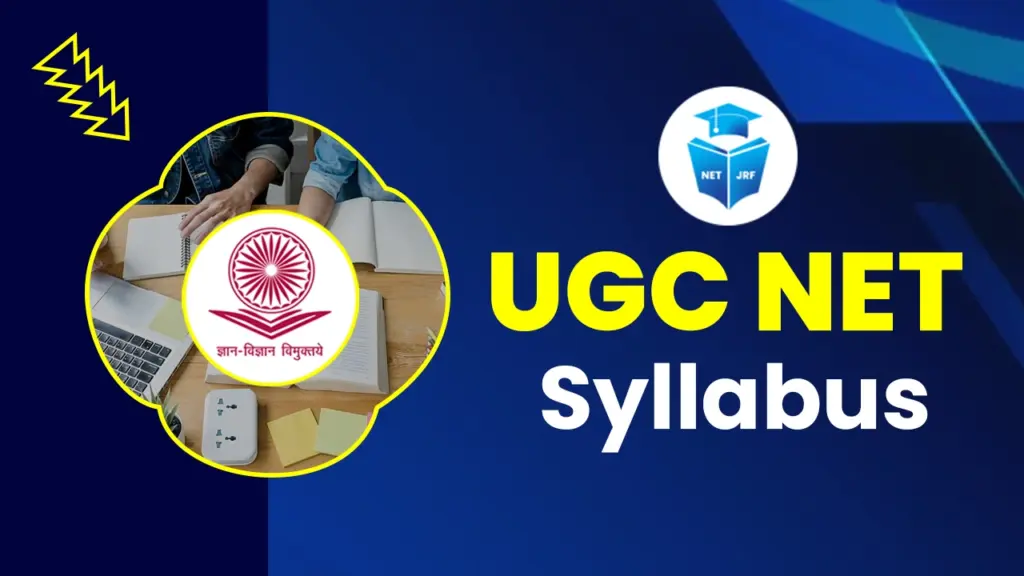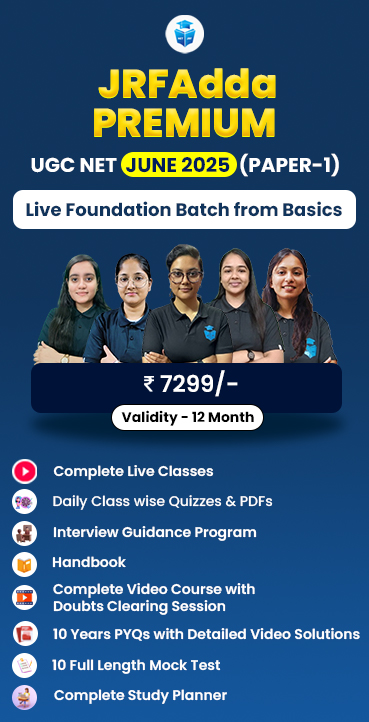The UGC NET June 2025 exam is coming up soon, and this is the perfect time for candidates to boost their preparation. To help aspirants, we have compiled detailed UGC NET Notes for Paper 1 and Paper 2, covering all important topics in a simple and structured manner.
These UGC NET Notes 2025 will help candidates grasp key concepts, improve problem-solving skills, and perform well in the exam. Whether you’re preparing for teaching aptitude, research methodology, reasoning, or general awareness, this guide provides all the essential study material to excel in Paper 1 and Paper 2 of UGC NET 2025.
Paper 1 is common for all candidates and tests teaching aptitude, research skills, reasoning ability, and general awareness.
Understanding these concepts helps candidates develop a strong research mindset and enhances their ability to design and execute impactful studies. Mastering this section is essential for success in UGC NET Paper 1 and beyond!
Tip: Since there’s no negative marking, attempt all questions even if unsure!
UGC NET Notes 2025 Why Are They Important?
Preparing for UGC NET 2025 requires smart study techniques. Our UGC NET Notes provide: Concise and structured content for easy understanding Practice questions and examples to reinforce concepts Topic-wise breakdown for systematic learning Helpful insights to strengthen weak areas These notes are prepared according to the latest UGC NET syllabus and exam pattern, ensuring candidates cover every topic effectively.UGC NET Paper 1 Overview
Before diving into study notes, let’s first understand the exam structure for Paper 1.| Exam Details | Information |
| Exam Name | UGC National Eligibility Test (NET) |
| Conducting Body | National Testing Agency (NTA) |
| Exam Mode | Online |
| Papers in UGC NET | Paper 1 |
| Total Questions | 50 |
| Total Marks | 100 |
| Duration | 1 Hours |
| Negative Marking | No |
UGC NET Paper 1 Notes 2025 Subject-Wise Study Material
The UGC NET Paper 1 consists of 10 major topics, each covering different aspects of teaching, research, reasoning, and communication. Below are the best study notes for each section.Unit I: Teaching Aptitude
The Teaching Aptitude section in UGC NET Paper 1 evaluates a candidate’s knowledge of teaching methodologies, learning psychology, and classroom management techniques. Understanding these topics is crucial for aspiring educators to create an effective learning environment. Below is an explanation of key topics covered in this section:1. Characteristics of Adolescent and Adult Learners
Adolescents and adults have different learning styles and cognitive abilities. Adolescents are more receptive to interactive and structured learning, while adults rely on self-directed learning based on experiences. Understanding these differences helps educators tailor their teaching approaches.2. Teaching Competencies
A competent teacher must possess various skills, including subject knowledge, communication, adaptability, and assessment techniques. Effective teaching involves engaging students, using innovative methods, and continuously improving instructional strategies.3. Models of Teaching – Meaning and Types
Teaching models provide structured approaches to education. Common models include behavioral, cognitive, and constructivist models, each focusing on different aspects of student engagement and knowledge retention.4. Teaching Support System
A teaching support system includes technology, instructional materials, and learning aids that enhance classroom experiences. Digital tools, smart classrooms, and learning management systems (LMS) improve student engagement and comprehension.5. Levels of Teaching
Teaching occurs at three levels:- Memory Level – Focuses on rote learning and recall.
- Understanding Level – Encourages comprehension and concept application.
- Reflective Level – Promotes critical thinking and problem-solving.
6. Evaluation System
Assessment methods such as formative (continuous feedback) and summative (final exams, standardized tests) help measure student learning and improve teaching effectiveness.7. Principles of Effective Teaching
Effective teaching follows principles like clarity in instruction, student engagement, feedback mechanisms, adaptability, and inclusivity. A good teacher motivates students and fosters a collaborative learning environment.Unit II: Research Aptitude
The Research Aptitude section of UGC NET Paper 1 assesses candidates’ understanding of research fundamentals, methodologies, data collection techniques, and ethical considerations. This section is crucial for those pursuing careers in academia and research. Below is a breakdown of the key topics:1. Positivism & Post-Positivistic Approach in Research
- Positivism is a research philosophy that believes in objective reality, measurable data, and scientific methods. It is used in quantitative research where statistical analysis is key.
- Post-Positivism challenges positivism by acknowledging that knowledge is not absolute and that biases can influence research. It supports qualitative and mixed-method research, allowing for subjective interpretations.
2. Research Methodology
Research methodology refers to the overall strategy used to conduct research. It includes:- Experimental research (controlled settings, lab studies)
- Descriptive research (observations, case studies)
- Exploratory research (new topic exploration)
- Explanatory research (establishing cause-effect relationships)
3. Steps of the Research Process
The research process involves:- Identifying a research problem
- Reviewing literature
- Formulating objectives and hypotheses
- Choosing a research design
- Collecting and analyzing data
- Interpreting results and drawing conclusions
- Reporting and publishing findings
4. Research Methods
Research methods are categorized into:- Qualitative Methods – Case studies, interviews, ethnographic studies.
- Quantitative Methods – Surveys, experiments, statistical analysis.
- Mixed Methods – Combining qualitative and quantitative approaches for a more holistic understanding.
5. Research Ethics
Ethical research practices ensure integrity, objectivity, and respect for participants. Key ethical principles include:- Informed consent from participants.
- Confidentiality and privacy of data.
- Avoiding plagiarism and maintaining academic honesty.
- No harm to participants, ensuring fairness and transparency.
6. Qualitative vs. Quantitative Research
| Feature | Qualitative Research | Quantitative Research |
| Nature | Descriptive, subjective | Numerical, objective |
| Data Collection | Interviews, case studies | Surveys, experiments |
| Analysis | Thematic, interpretive | Statistical, mathematical |
| Example | Ethnographic study | Market survey on product demand |
Unit III: Comprehension
The comprehension section evaluates the candidate’s ability to read and understand a passage of text. A passage is provided, and candidates must answer multiple-choice questions based on it.How to Prepare?
- Practice reading comprehension daily, focusing on different types of texts such as academic papers, news articles, and literature.
- Identify the main idea, supporting arguments, and tone of the passage.
- Learn strategies for answering inference-based questions, where you must deduce information not explicitly mentioned in the passage.
- Work on vocabulary and contextual meaning to grasp complex words and phrases.
Unit IV: Communication
1. Meaning, Types, and Characteristics of Communication
Communication is the exchange of ideas, thoughts, and information between individuals or groups. It can be verbal, non-verbal, written, or digital.2. Effective Communication
Effective communication ensures that the message is understood clearly by the receiver. It includes:- Verbal Communication: Spoken words, lectures, discussions.
- Non-Verbal Communication: Facial expressions, gestures, body language.
- Inter-Cultural Communication: Communication between people from different cultures.
- Group Communication: Interaction in teams, meetings, and debates.
- Classroom Communication: Teacher-student interactions, feedback, and engagement strategies.
3. Barriers to Effective Communication
Common barriers include:- Language barriers (differences in vocabulary, slang, or jargon)
- Psychological barriers (stress, emotions, lack of attention)
- Physical barriers (distance, noise, poor technology)
- Cultural barriers (differences in beliefs, customs, and communication styles)
4. Mass Media and Society
Mass media, such as newspapers, TV, and social media, play a crucial role in shaping public opinion, culture, and education. With digital advancements, ICT has made information more accessible, but challenges like fake news and information overload persist.Unit V: Mathematical Reasoning and Aptitude
Mathematical reasoning tests a candidate’s ability to solve numerical and logical problems. It includes:1. Types of Reasoning
- Inductive Reasoning: Observing patterns to make generalizations.
- Deductive Reasoning: Using logic to reach conclusions.
- Analogical Reasoning: Finding similarities between different situations.
2. Number Series, Letter Series, Codes, and Relationships
- Recognizing patterns in numbers and letters.
- Decoding and encoding messages based on given rules.
- Understanding family and logical relationships.
3. Mathematical Aptitude Topics
- Fractions and Decimals
- Time & Distance Problems
- Ratio, Proportion & Percentage
- Profit & Loss Calculations
- Simple & Compound Interest
- Discounting & Averages
Unit VI: Logical Reasoning
This section evaluates critical thinking and analytical abilities.1. Understanding Arguments
- Structure of Arguments: Premises, conclusions, and logical flow.
- Categorical Propositions: Statements that define relationships between categories.
- Logical Fallacies: Errors in reasoning that weaken arguments.
2. Deductive and Inductive Reasoning
- Deductive Reasoning: Deriving specific conclusions from general statements.
- Inductive Reasoning: Generalizing from specific observations.
3. Analogies and Venn Diagrams
- Analogies: Finding similarities between different objects or concepts.
- Venn Diagrams: Representing logical relationships visually.
4. Indian Logic (Nyaya System)
- Pramanas (Sources of Knowledge):
- Pratyaksha (Perception)
- Anumana (Inference)
- Upamana (Comparison)
- Shabda (Verbal Testimony)
- Arthapatti (Postulation)
- Anupalabdhi (Non-perception)
- Hetvabhasas (Fallacies of Inference): Errors in logical arguments.
Unit VII: Data Interpretation
Data interpretation involves analyzing and understanding numerical data.1. Types of Data
- Qualitative Data (descriptive, non-numeric)
- Quantitative Data (measurable, numeric)
2. Data Representation Methods
- Bar Charts & Histograms
- Pie Charts & Line Charts
- Table Charts & Graphs
3. Importance of Data in Governance
Governments use data analysis for policy-making, development planning, and decision-making.Unit VIII: Information and Communication Technology (ICT)
ICT covers digital tools and their applications in education and governance.1. General Abbreviations & Terminology
- IP Address, URL, HTTP, HTML, AI, ML, IoT
2. Basics of Internet, Intranet & Digital Communication
- Internet & Email
- Audio & Video Conferencing
3. Digital Initiatives in Higher Education
- SWAYAM, NPTEL, MOOCs, DIKSHA
4. ICT and Governance
E-governance ensures transparency and efficiency in public services.Unit IX: People, Development, and Environment
1. Sustainable Development Goals (SDGs)
Global goals for poverty eradication, quality education, climate action.2. Environmental Issues
- Air, Water, Soil, and Noise Pollution
- Climate Change and its Socio-Economic Impact
3. Energy Resources
- Solar, Wind, Hydro, Geothermal, Biomass, Nuclear Energy
4. Environmental Protection Laws & Agreements
- Environment Protection Act (1986)
- Kyoto Protocol, Paris Agreement, International Solar Alliance
Unit X: Higher Education System
1. Evolution of Higher Education in India
- Ancient Universities (Nalanda, Takshashila)
- Modern Education Post-Independence
2. Learning Systems in India
- Conventional & Non-Conventional Education
- Technical & Skill-Based Education
3. Policies, Governance, and Administration
- National Education Policy (NEP)
- Higher Education Regulatory Bodies (UGC, AICTE, NCTE)
How to Use UGC NET Notes Effectively?
Follow a Study Plan: Set daily targets for each subject. Practice MCQs: Attempt as many mock tests as possible. Revise Regularly: Go through notes frequently to retain information. Use Digital Resources: Watch online lectures and refer to PDFs for extra knowledge. The UGC NET Notes 2025 provided here are your ultimate guide to acing Paper 1. With structured content, downloadable PDFs, and practice questions, these notes will help you streamline your preparation. Start preparing today with these best study materials and stay ahead in the competition. All the best for your UGC NET Exam 2025!UGC NET Paper 2 Notes 2025 Subjects, Syllabus & Exam Pattern
If you are preparing for the UGC NET Paper 2 in 2025, you need a clear understanding of the subjects, syllabus, and exam pattern. This article will provide you with all the details about UGC NET Paper 2 Notes 2025, including subject codes, preparation tips, and important exam guidelines.What is UGC NET Paper 2?
UGC NET Paper 2 is a subject-specific paper designed to test candidates’ expertise in their chosen field. It consists of 100 multiple-choice questions (MCQs), each carrying 2 marks, making a total of 200 marks. This paper plays a crucial role in determining a candidate’s eligibility for the Assistant Professor role or Junior Research Fellowship (JRF) in India.UGC NET Paper 2 Subjects List of Subjects & Codes
Candidates must select their Paper 2 subject based on their post-graduation specialization. Below is the list of UGC NET Paper 2 subjects along with their subject codes:List of UGC NET Paper 2 Subjects & Codes
The UGC NET Paper 2 exam requires candidates to select a subject based on their postgraduate specialization. With 85 different subjects, choosing the right one is crucial for success. Below, we have provided a detailed breakdown of all UGC NET subjects with their codes, along with brief explanations of each field.1. Humanities & Social Sciences
These subjects focus on understanding human behavior, society, history, and philosophy.- Anthropology (07) – The study of human evolution, culture, and society. Topics include archaeology, biological anthropology, and linguistic anthropology.
- Arab Culture and Islamic Studies (49) – Covers Arabic literature, history, and Islamic civilization, including religious texts and cultural evolution.
- Buddhist, Jaina, Gandhian, and Peace Studies (60) – Focuses on philosophical and ethical teachings, conflict resolution, and their relevance to modern society.
- Comparative Literature (72) – Examines literature across different cultures, languages, and historical periods.
- Comparative Study of Religions (62) – Studies world religions, their philosophies, beliefs, and interconnections.
- Economics (01) – Includes microeconomics, macroeconomics, economic policies, and financial systems.
- History (06) – Covers ancient, medieval, and modern history, including historiography and archaeology.
- Human Rights and Duties (92) – Focuses on international human rights, constitutional rights, and social justice.
- Indian Culture (50) – Studies India’s cultural heritage, traditions, arts, and socio-political history.
- Philosophy (03) – Covers metaphysics, ethics, logic, and Indian and Western philosophical traditions.
- Political Science (02) – Includes political theories, governance, public policies, and international relations.
- Psychology (04) – Deals with human behavior, cognitive processes, and mental health.
- Public Administration (14) – Covers governance, public policies, administration theories, and e-governance.
- Sociology (05) – Studies social institutions, cultural norms, gender studies, and rural and urban sociology.
- Social Work (10) – Focuses on community development, social justice, and counseling.
- Women Studies (74) – Examines gender roles, feminism, and women’s rights movements.
2. Languages & Literature
These subjects focus on literature, linguistics, and the evolution of different languages.- Arabic (29) – Studies Arabic language, poetry, prose, and classical Islamic texts.
- Assamese (36) – Covers Assamese literature, history, and linguistics.
- Bengali (19) – Explores Bengali literature, language structure, and its cultural impact.
- Bodo (94) – Focuses on the Bodo language and its literary traditions.
- Chinese (32) – Studies Chinese language, literature, and its historical significance.
- Dogri (33) – Covers Dogri literature and linguistics.
- English (30) – Includes English literature, criticism, and linguistic studies.
- French (39) – Focuses on French literature, grammar, and linguistic studies.
- German (44) – Covers German language, literature, and cultural studies.
- Gujarati (37) – Includes Gujarati poetry, prose, and literary movements.
- Hindi (20) – Covers Hindi literature, criticism, and historical evolution.
- Japanese (45) – Studies Japanese language and cultural heritage.
- Kannada (21) – Covers Kannada literature and history.
- Kashmiri (84) – Explores Kashmiri poetry, prose, and linguistics.
- Konkani (85) – Studies Konkani literature, its linguistic structure, and folk traditions.
- Linguistics (31) – Examines the scientific study of language, phonetics, and syntax.
- Maithili (18) – Covers Maithili literature, poetry, and linguistic patterns.
- Malayalam (22) – Focuses on Malayalam literature, history, and cultural contributions.
- Manipuri (35) – Studies Manipuri language, folklore, and literature.
- Marathi (38) – Covers Marathi literary works, poets, and cultural history.
- Nepali (34) – Explores Nepali language and literature.
- Oriya (23) – Covers Oriya literature and linguistic developments.
- Pali (83) – Studies Pali language, Buddhist scriptures, and philosophy.
- Persian (42) – Covers Persian literature and its influence on Indian culture.
- Punjabi (24) – Includes Punjabi poetry, prose, and Sikh literature.
- Rajasthani (43) – Covers Rajasthani folk literature and linguistics.
- Russian (41) – Focuses on Russian language and literary contributions.
- Sanskrit (25) – Covers Sanskrit literature, scriptures, and epics.
- Santali (95) – Studies Santali oral traditions and linguistic structure.
- Sindhi (101) – Covers Sindhi literature and linguistic aspects.
- Spanish (40) – Focuses on Spanish language and literary movements.
- Tamil (26) – Studies Tamil literature and cultural heritage.
- Telugu (27) – Covers Telugu language and its literary contributions.
- Urdu (28) – Includes Urdu poetry, prose, and historical influences.
3. Science & Technology
These subjects deal with scientific research, innovation, and technological advancements.- Computer Science and Applications (87) – Covers algorithms, programming, AI, and data science.
- Electronic Science (88) – Focuses on semiconductors, microelectronics, and digital systems.
- Environmental Sciences (89) – Studies climate change, biodiversity, and sustainability.
- Forensic Science (82) – Covers criminal investigations and forensic methodologies.
- Physical Education (47) – Includes sports science, biomechanics, and fitness.
- Yoga (100) – Studies ancient yoga traditions and its benefits for health.
- Ayurveda Biology (105) – Focuses on medicinal plants and traditional healing practices.
4. Education & Management
These subjects cover academic disciplines related to education and administration.- Adult Education (46) – Focuses on lifelong learning and non-formal education.
- Education (09) – Covers pedagogy, curriculum development, and teaching methodologies.
- Labour Welfare & HRM (55) – Deals with industrial relations and personnel management.
- Law (58) – Covers constitutional law, human rights, and jurisprudence.
- Library and Information Science (59) – Studies knowledge organization and digital archiving.
- Management (17) – Covers business management, marketing, and finance.
- Mass Communication & Journalism (63) – Focuses on media studies, journalism, and communication theories.
- Tourism Administration (93) – Covers tourism management, hospitality, and travel marketing.
5. Performing Arts, Fine Arts & Culture
These subjects explore artistic expression and cultural preservation.- Archaeology (67) – Studies excavation methods and ancient civilizations.
- Museology & Conservation (66) – Focuses on preserving historical artifacts.
- Music (16) – Covers Indian classical and Western music.
- Performing Arts (65) – Includes theatre, dance, and drama studies.
- Visual Arts (79) – Covers painting, sculpture, and art history.
6. Specialized & Emerging Subjects
- Criminology (68) – Studies crime patterns and criminal justice.
- Defence & Strategic Studies (11) – Covers military strategies and national security.
- Hindu Studies (102) – Focuses on Hindu philosophy and scriptures.
- Indian Knowledge System (103) – Covers ancient Indian sciences and wisdom.
- Disaster Management (104) – Deals with emergency response strategies.
- Population Studies (15) – Studies demographics and migration patterns.
UGC NET Paper 2 Syllabus 2025 What to Expect?
The UGC NET Paper 2 syllabus varies depending on the chosen subject. However, each subject’s syllabus is structured to test:- Conceptual clarity
- Research aptitude
- Analytical skills
- Teaching ability
Where to Check the UGC NET Paper 2 Syllabus?
Candidates can download the official syllabus for their subject from the National Testing Agency (NTA) website: https://ugcnet.nta.nic.inHow to Choose the Right UGC NET Paper 2 Subject?
Selecting the right UGC NET Paper 2 subject is crucial. Here’s how to choose wisely:- Stick to Your Post-Graduation Subject – The subject you studied in your Master’s degree should be your first choice.
- Choose a Closely Related Subject – If your exact subject is not available, pick the closest subject related to your field.
- Read the Syllabus – Go through the syllabus of different subjects before finalizing your choice.
Special Cases for Subject Selection
Candidates with a Master’s in Geography (Population Studies specialization) OR Mathematics/Statistics can opt for Population Studies (Code 15). Candidates with a Master’s in Humanities & Social Sciences can appear for Women’s Studies (Code 74).UGC NET Paper 2 Exam Pattern 2025
Understanding the exam pattern is essential for effective preparation. Here’s a breakdown:UGC NET Paper 2 2025 Exam Pattern
| Exam Features | Details |
| Total Questions | 100 |
| Total Marks | 200 |
| Question Type | Multiple-Choice Questions (MCQs) |
| Marks Per Question | 2 Marks |
| Negative Marking | No negative marking |
| Duration | 2 Hours (No Break) |
Important UGC NET Paper 2 Exam Rules 2025
Before appearing for the exam, keep these important rules in mind: Two Papers: UGC NET consists of Paper 1 (General Teaching & Research Aptitude) and Paper 2 (Subject-Specific). Exam Languages: Candidates can take the exam in English or Hindi. Question Format: Each question has four options—only one is correct. Dropped Questions: If UGC drops a question, all candidates who attempted it will get full marks. Multiple Correct Answers: If a question has more than one correct answer, candidates who selected any correct option will receive marks.Preparation Strategy for UGC NET Paper 2 2025
Follow these tips to prepare effectively:Understand the Syllabus Thoroughly
- Download the official syllabus for your chosen subject.
- Divide it into manageable topics and create a study plan.
Practice Previous Year Papers
- Solve past question papers to understand the pattern and frequently asked topics.
- Identify strong & weak areas based on your performance.
Take Online Mock Tests
- Enroll in UGC NET online mock tests to practice under real exam conditions.
- Analyze mistakes and improve weak areas.
Use Standard Reference Books
- Read recommended textbooks for your subject.
- Use online resources & video lectures for better understanding.
Time Management is Key
- Allocate fixed study hours each day.
- Take short breaks to avoid burnout.
When Will the New UGC NET Syllabus be Introduced?
The UGC NET syllabus is updated periodically. Any new syllabus updates for 2025 will be announced on the official NTA website. Candidates should check regularly for official notifications. Official Website: https://ugcnet.nta.nic.inConclusion
Preparing for UGC NET 2025 requires a structured approach, covering Paper 1’s general topics and Paper 2’s subject-specific content. Mastering key concepts, practicing MCQs, and revising consistently will enhance your chances of success. With the right study materials, strategic planning, and regular practice, you can clear the exam efficiently. Use digital resources, attempt mock tests, and stay updated with the latest syllabus. Choosing the correct subject for Paper 2 based on your specialization is crucial. Stay focused, stay disciplined, and give your best effort. Success in UGC NET opens doors to academic and research opportunities. Best of luck!UGC NET Notes 2025 FAQs
Paper 1 has 50 questions (100 marks), focusing on teaching and research aptitude. Paper 2 has 100 subject-specific questions (200 marks). Both papers are conducted in a single session.
- Focus on teaching aptitude, research methodology, logical reasoning, comprehension, ICT, and environmental topics. Practice MCQs, take mock tests, and revise regularly for better retention.
- No, once the application is submitted, you cannot change your subject. Carefully choose a subject that aligns with your postgraduate specialization before applying.
- No, there is no negative marking in UGC NET. Candidates are encouraged to attempt all questions to maximize their scores without fear of penalty.
The UGC NET certificate for Assistant Professor is valid for a lifetime, while the Junior Research Fellowship (JRF) award is valid for three years from the date of issue.




